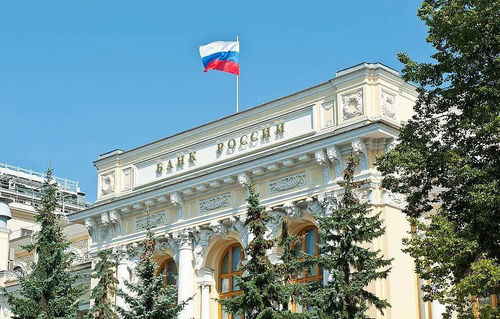Bank Of Russia Eases More Capital Controls, Allowing Euro & USD Withdraws
Russia’s central bank has announced Friday the easing of more capital controls following its surprise policy meeting, exactly a week after it began loosening some restrictions on the transfer of funds abroad, which authorized transfers up to $10,000 – or another currency equivalent – within a one month timeframe.
“The Bank of Russia rolled back some capital controls, allowing banks to exchange rubles for hard currency once more and for some hard-currency account holders to withdraw euros and not just dollars,” Bloomberg reports of the fresh Bank of Russia decision.
It’s latest among a series of signs that the Russian financial system is stabilizing. As we noted earlier in the day the biggest news out of Moscow was the central bank’s unexpected move of slashing rates by 300bps (from 20% to 17%). And was even more surprising to many is that the Ruble – previously dismissed as “rubble” by President Biden – actually strengthened further on the rate-cut, surging by end of day to just below 80/USD.
Further according to Bloomberg, “Individuals with foreign currency accounts or deposits open prior to March 9 who hadn’t used up their $10,000 limit for withdrawing cash, can receive euros as well as dollars from April 11, the central bank said in a statement.
“Banks can sell foreign currency once again from April 18, but only the foreign currency that the banks received since April 9,” the report indicates. The fresh curbs also included canceling the 12% commission on brokers’ FX purchases.
3/ The Bank of Russia is also marginally easing capital controls on individuals: those who still didn’t manage to get their $10k can do it in € now as well (still max $10k till September). Banks can start giving individuals FX cash, but only from fresh FX since 9 April 2022. pic.twitter.com/GOviSvmwkP
— Elina Ribakova 🇺🇦 (@elinaribakova) April 8, 2022
Meanwhile, the media are claiming that the strength of the ruble “may be illusory” or that Russia has exploited a “loophole” in the sanctions and used “financial alchemy” to “rescue the ruble”.
But as the FT observed yesterday (while telling their readers to “Whisper it quietly…”), “The domestic banking sector also seems to have stabilized, after bank runs in the initial days of the war,” pointing out that “The need for central bank liquidity has faded sharply and the commercial banking sector as a whole could soon end up having surplus deposits with the CBR, the IIF [Institute of International Finance] notes.”
Tyler Durden
Fri, 04/08/2022 – 18:40
via ZeroHedge News https://ift.tt/Bm0SR57 Tyler Durden
